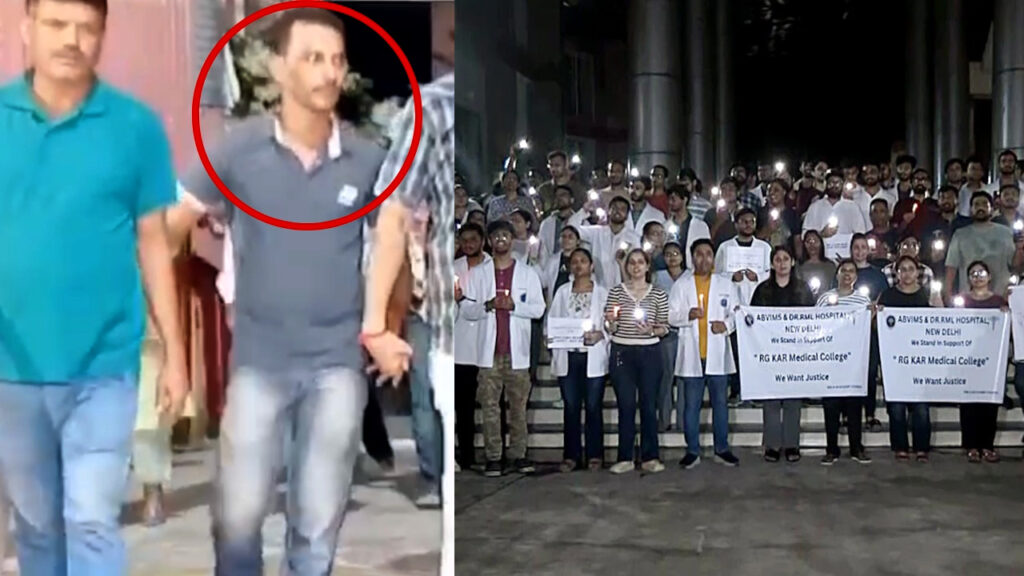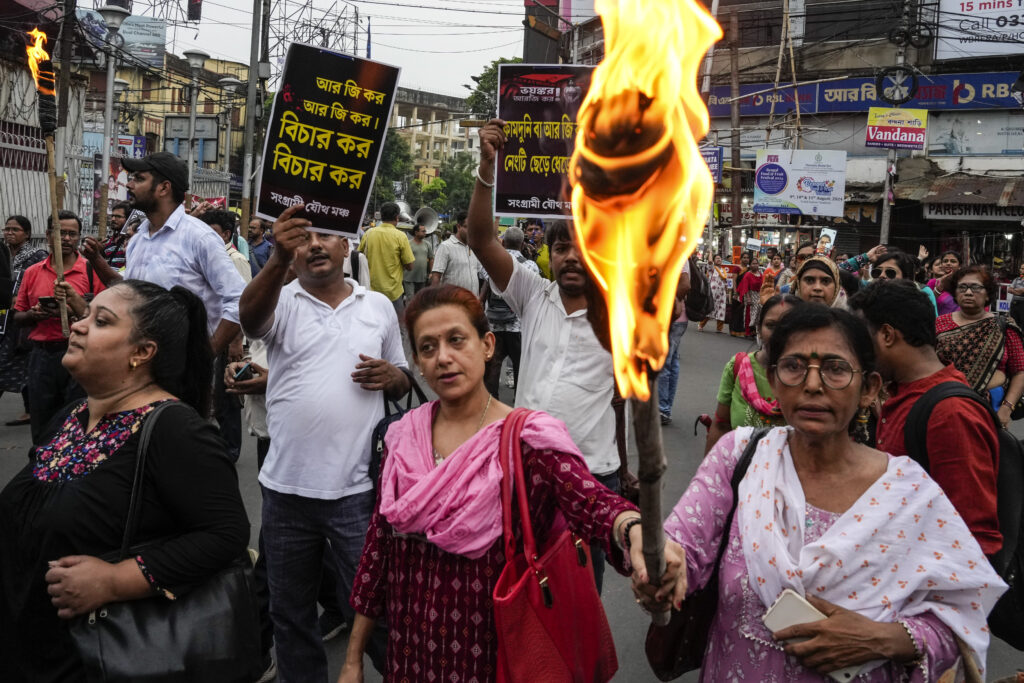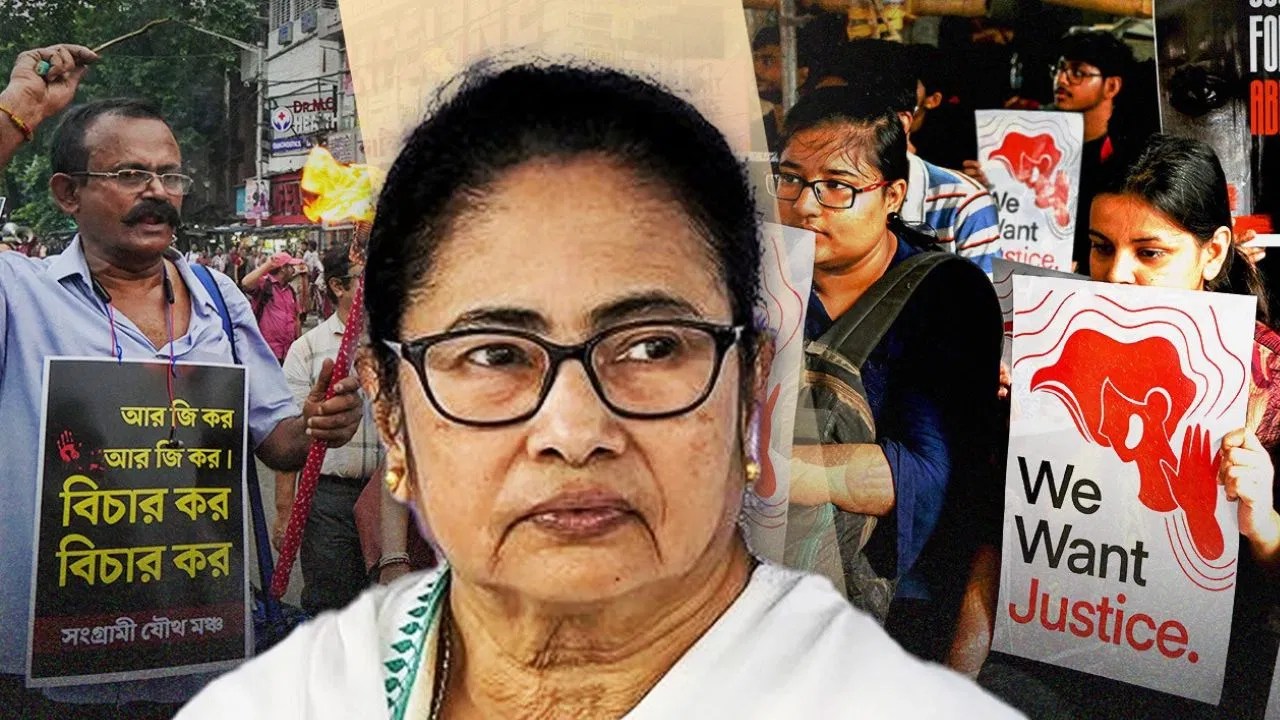The horrific rape and murder of a trainee doctor at R G Kar Medical College in Kolkata has ignited a firestorm of criticism against the West Bengal government, led by Chief Minister Mamata Banerjee. This incident, which has shocked the nation, has brought to light not only the brutality faced by women in India but also the severe shortcomings in the governance and policing in the state. The tragedy is a painful reminder of the state’s failure to protect its citizens, particularly women, and the dire condition of law enforcement.

The Incident and Its Aftermath
On an ordinary day in August 2024, the body of a young trainee doctor was discovered in a secluded area near R G Kar Medical College. The doctor, who had shown promise and dedication in her medical career, was brutally raped and murdered. The brutality of the crime left the community reeling in shock and anger, leading to widespread protests and demands for justice.
The initial response from the government was slow and lackluster, with authorities struggling to manage the growing unrest. The case, which quickly gained national attention, highlighted the deep-rooted issues within the state’s administration and law enforcement agencies. Despite public outcry, there was a noticeable delay in taking decisive action, a delay that many see as indicative of a larger problem within the Banerjee administration.
A Government Under Fire
Mamata Banerjee, who has long prided herself on being a leader of the people, has come under intense scrutiny for her government’s handling of this case. Critics argue that her administration has failed to create a safe environment for women, despite numerous promises and initiatives. The tragic death of the trainee doctor is seen as a direct consequence of the government’s inability to implement effective policies and ensure their enforcement.
One of the major criticisms leveled against the Banerjee government is the apparent disconnect between the state’s leadership and the ground realities faced by its citizens. While the government often touts its social welfare programs, these initiatives have done little to address the deep-seated issues of gender-based violence and the lack of safety for women. The R G Kar incident is not an isolated one, but rather part of a disturbing pattern of violence against women in the state.
Furthermore, the government’s initial response to the protests was criticized as being dismissive and unempathetic. Instead of addressing the legitimate concerns of the protesters, the administration seemed more focused on controlling the narrative and avoiding political fallout. This approach only fueled further anger and resentment among the public, who felt betrayed by a government that had promised to stand by them.
The Accused and the State of Policing
As the investigation unfolded, it became evident that the accused were not mere opportunists but had likely premeditated the crime, indicating a level of criminal intent that is deeply troubling. The police, who were tasked with investigating the case, faced significant challenges, not least of which was their own lack of resources and training. The condition of the police force in West Bengal has long been a point of concern, with reports of understaffing, inadequate training, and poor morale.
In this particular case, the police were slow to identify suspects, and there were numerous reports of mishandling of evidence and procedural lapses. These shortcomings are symptomatic of a larger issue within the state’s law enforcement agencies, which are often hamstrung by political interference and lack the autonomy needed to carry out their duties effectively.
The West Bengal police force, like many others across India, suffers from systemic issues that have gone unaddressed for far too long. Low wages, poor working conditions, and a lack of professional development opportunities have all contributed to a police force that is ill-equipped to handle the complexities of modern law enforcement. In a state where political patronage often trumps merit, the police are frequently caught between the demands of their political masters and their duty to uphold the law.
Steps Needed for Reform
To prevent such tragedies from recurring, it is imperative that the West Bengal government undertakes significant reforms. These reforms must address both the immediate issues of law enforcement and the broader social and political context that enables such crimes to occur.
- Strengthening Policing: The state police force must be overhauled to improve its effectiveness. This includes better training, increased resources, and most importantly, insulating the police from political influence. The police should be empowered to carry out their duties without fear or favor, ensuring that justice is served swiftly and fairly.
- Ensuring Accountability: The government must be held accountable for its failures. This includes not only addressing the shortcomings in the current case but also implementing long-term measures to improve governance. Transparency in the administration and a commitment to upholding the rule of law are essential.
- Protecting Women: The safety of women must be a priority. This requires not only stronger laws but also a cultural shift towards gender equality. The government must invest in public awareness campaigns, improve infrastructure to ensure women’s safety, and work closely with civil society organizations to create a safer environment.
- Judicial Efficiency: The judiciary in West Bengal must be strengthened to ensure that cases of sexual violence are dealt with promptly. This includes reducing delays in trials and ensuring that survivors have access to the necessary legal and psychological support.

Conclusion
The tragic death of the trainee doctor at R G Kar Medical College is a glaring indictment of the failures of Mamata Banerjee’s government. It highlights the urgent need for systemic reforms in policing and governance. The state must take decisive action to ensure that justice is not only served in this case but that steps are taken to prevent such tragedies in the future. Only then can the people of West Bengal begin to rebuild their trust in the government and its ability to protect its citizens.

